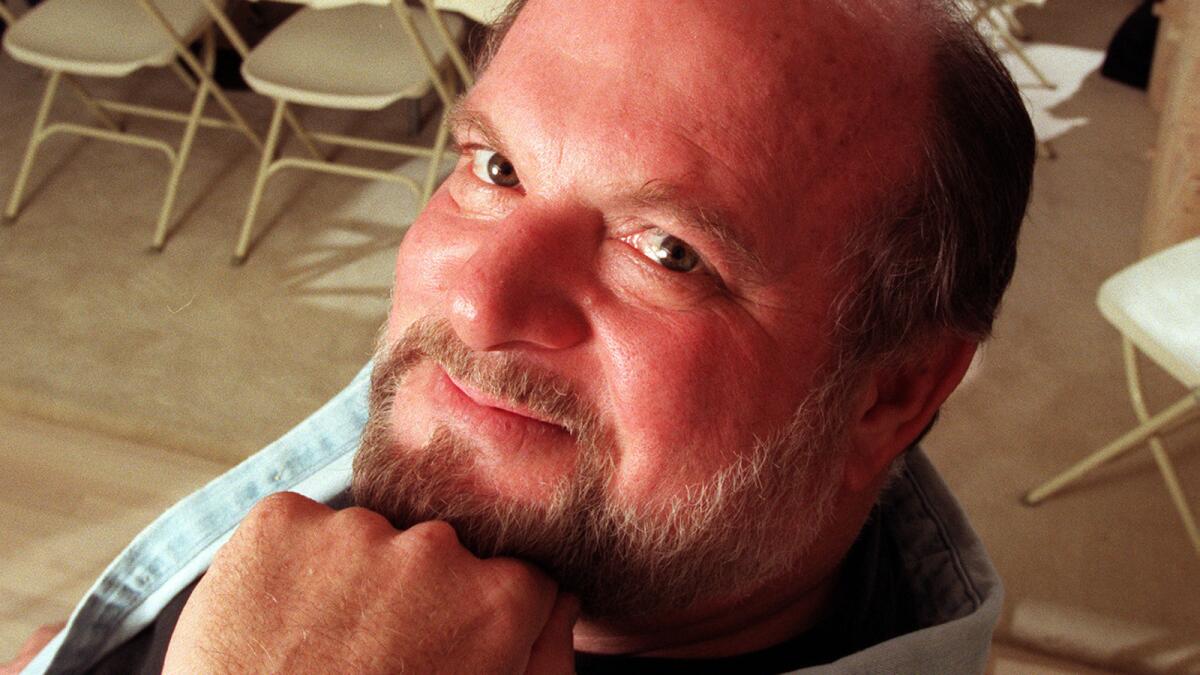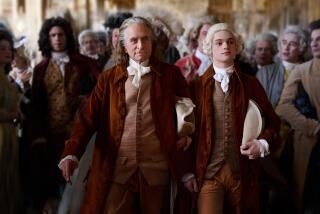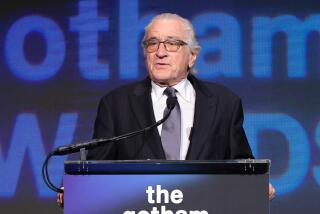With restored version out, ‘1776’ director recalls politics behind cuts

Peter Hunt is pictured here at his Los Angeles home in 1997.
Director Peter H. Hunt left for Europe after he finished postproduction on “1776,” the patriotic musical based on the Tony Award-winning Broadway hit about the Founding Fathers.
“The picture was locked,” recalled Hunt of the film. He had won a Tony for directing the 1969 Broadway production.
But not for long.
In Hunt’s absence, the film’s legendary producer, Jack L. Warner, who had been the longtime head of Warner Bros., reedited the 1972 Columbia release.
“He was very proud of the picture,” said Hunt. So proud Warner decided to show the completed film to his friend, President Richard Nixon. “What he showed the president was what Jack wanted the world to see.”
But the world saw a different version when “1776” opened for the holidays that November.
“When Warner brought him the print, he said it’s wonderful and it will fit in with the reelection,” Hunt said.
But Nixon had objections. There were some lines he wasn’t fond of that he wanted edited out, and then he asked Warner to cut “Cool, Cool, Considerate Men,” a powerful song sung by the conservatives of the Continental Congress in which they relate why they want to remain under British rule.
The song, said Hunt, “was the centerpiece of all the trailers that were already in the theater. When I got home, I discovered that this had happened, to my horror. I rushed into Jack’s office and said, ‘What have you done?’ The rest is history. He did go on to say, ‘I’ve shredded the negative so history cannot second-guess me.”’
Thankfully, Warner hadn’t destroyed all the negatives. “At Columbia, he didn’t have the control he thought he had,” Hunt said.
And now after 43 years, Hunt’s director’s cut of “1776” has been released on Blu-ray. The restored version of the musical comedy-drama, as well as an extended cut, was restored in ultra-high definition from the original camera negative under the supervision of Hunt and Grover Crisp, Sony’s executive vice president of asset management, film restoration and digital mastering.
Over the years, bits and pieces of the film had been found in the Sony vaults. For its 2002 DVD debut, which reinstated “Cool, Cool Considerate Men,” Crisp said, “we really dug in and started a serious search to see if we could find this material.”
“No one could find the negative until finally Grover found it,” said Hunt. “It was in an unmarked box. It was like Sherlock Holmes.”
Crisp noted that the negative had faded to some degree, “and some of the little sections we needed to put back in had faded to different degrees. You want to make it one seamless shot. It was a little bit tricky to get the colors to match.”
Featuring a witty book by Peter Stone and a smart score by Sherman Edwards, “1776” was the toast of Broadway, winning three Tony Awards: best musical, director and supporting actor for Ron Holgate as Richard Henry Lee.
Still smarting from complaints that he didn’t cast original Broadway star Julie Andrews in his 1964 Oscar-winning production of “My Fair Lady,” Warner cast most of the “1776” Broadway ensemble in the movie, including William Daniels as John Adams, Howard Da Silva as Benjamin Franklin, Ken Howard as Thomas Jefferson, Holgate as Lee, and Virginia Vestoff as Abigail Adams. New to the cast was Blythe Danner as Martha Jefferson.
Howard, currently the president of SAG-AFTRA, said the musical managed to appeal to conservatives and the counterculture who were protesting the Vietnam War.
“It was a way for people regardless of their political persuasion to feel patriotic,” Howard said. “It was a wonderful original idea hatched by Sherman Edwards, but it also has a wonderful book by Peter Stone.”
Howard said he enjoyed doing the film, especially getting a chance to work again with Da Silva. “I loved that Howard Da Silva was back in it. Howard had a minor heart attack a few days before [the Broadway opening], and he was determined to do the opening.”
And Da Silva did.
“When the show was over, they had an ambulance waiting for him and he was gone,” Howard said.
After he recovered from his heart attack, Da Silva returned to the show, but by that time Howard had left to make a movie.
The film was a huge hit, said Hunt, at least when it opened as the Christmas presentation at Radio City Music Hall in New York City.
“They extended it,” said Hunt. “I think Columbia just rested on their laurels and thought this was going to take off, and then it didn’t. It wasn’t promoted in the right way and the big musicals were kind of coming to an end. Luckily over the years, it has continued to grow and grow and grow and has become a wonderful little minor classic.”
More to Read
Only good movies
Get the Indie Focus newsletter, Mark Olsen's weekly guide to the world of cinema.
You may occasionally receive promotional content from the Los Angeles Times.







